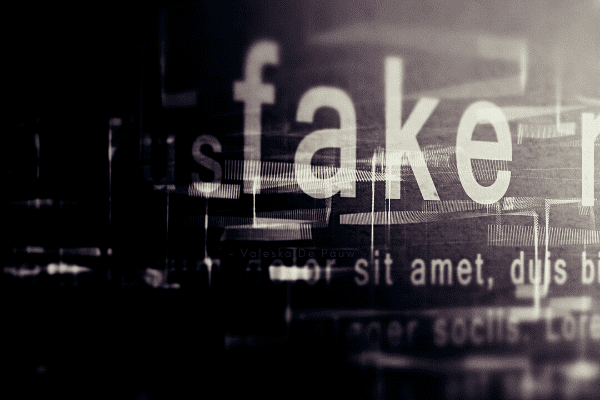You might have read about counterfeit medication used to stop COVID-19. This proves once again that counterfeit goods are here to stay. As a trademark owner it is quite difficult to take action against these practices. Especially since online marketplaces such as Amazon and eBay make it quite easy to sell the counterfeit goods. Shouldn’t trademark owners be able to take action directly against the online marketplace?
The recent Coty v. Amazon judgment of the European Court of Justice (ECJ) teaches us that it is difficult to hold online marketplaces accountable for such trademark infringements. Everything will depend on the facts and the exact role that the online marketplace fulfils.
Coty v. Amazon: what exactly happened?
Amazon is the world’s largest online marketplace for third-party vendors to offer their merchandise. It also allows vendors to outsource inventory management and fulfillment to Amazon through its ‘Shipping by Amazon’ program. The vendor’s inventory is then stored in Amazon’s logistics centers and dispatched from there by third party service providers.
In 2014, a test buyer from the German licensee of the brand DAVIDOFF -Coty Germany- bought a bottle of perfume “Davidoff Hot Water EdT 60 ml” through Amazon.de from a saleswoman who uses “Shipping by Amazon”. As suspected, the bottle turned out to be counterfeit.
Coty urged the saleswoman in question to stop selling the counterfeit perfume immediately. It also also took a stance against Amazon. According to Coty, Amazon is also guilty of counterfeiting because it manages and dispatches the counterfeited products and thus owns them.
The courts didn’t agree with Coty both in the first and second instance. The judges argued that Amazon had only stored the counterfeit goods on behalf of the saleswoman. Therefore, they had not used -counterfeited- the Davidoff brand itself. Coty then lodged an appeal with the German Bundesgerichtshof, which decided to refer the question to the ECJ. In particular, the Bundesgerichtshof wanted to know whether an undertaking which stores counterfeit goods on behalf of a third party vendor, without being aware of this infringement, was using the trademark itself (and would therefore be complicit to the counterfeiting).
Amazon isn’t directly liable, for the time being…
Both the European Community Trademark Regulation and the more recent Union Trademark Regulation state that as a trademark owner you can only take action against third parties if they use a sign that is identical or similar to your trademark.
The term “use” presupposes active conduct by the online marketplace (and by extension any third party) who has direct or indirect control over the action in which the use exists (see Daimler and Mitsubishi). The online marketplace must use the mark at the very minimum in the context of its own commercial communication and not only in that of the vendor (see Google France and Google). More specifically, this means for online marketplaces that they do not use the contested mark themselves when the mark is displayed on their platform in sales offers (see L’Oréal). Nor will an online marketplace ‘use’ the mark if it merely provides the technical facilities necessary for the use of the mark and is remunerated for that use (see Frisdranken Industrie Winters).
Fully in line with the above, the ECJ gave in the Coty t. Amazon case an interpretation of the more specific use that consists in “offering goods, placing them on the market, stocking them for that purpose or providing services under this sign”. The ECJ says that following this wording the storage of goods – as Amazon does – can only be qualified as “use” if the online marketplace itself intends to offer or market the goods. Since Amazon, based on the facts, did not itself have the intention to sell the perfume bottles or put them on the market, it does not use the Davidoff brand. So Coty cannot hold Amazon directly liable for a trademark infringement.
Is this a triumph for all online marketplaces and other intermediaries? Not really. The ruling is limited to the statement of facts as contained in the referral decision. The ECJ’s decision might have been different if the facts had shown that Amazon was more actively involved in marketing the goods. E.g. packing the goods, promoting them in the results on its search page, managing the returns, etc. The Advocate General seems to be of the opinion that an online marketplace in that case intends to sell or market the disputed goods and is therefore directly liable.
… but indirect liability remains possible
Fortunately, as a trademark owner you will not run out of ammunition yet. Because in addition to the trademark regulations, other legislation also remains important. In particular, the E-Commerce Directive and the Enforcement Directive make it possible to hold an intermediary liable when it enables another economic operator to unlawfully use a trademark.
As an information society service provider, an online marketplace may rely on the exemption from liability in Article 14(1) of the E-Commerce Directive in certain cases. However, this requires that the online marketplace has a purely passive role, ensuring only the technical process and access to the platform. Moreover, the exemption will only apply if the online marketplace (1) has no actual knowledge of the infringement and has no knowledge of facts and circumstances clearly establishing the infringement, or (2) acts promptly to remove the contested goods as soon as it becomes aware of the infringement. In order to assess whether an online marketplace is or should be aware of the infringement, one must ask oneself whether a diligent market participant should have detected the infringement (see L’Oréal). Therefore, if the online marketplace has or should have knowledge, or does not promptly remove the infringing goods after you have informed it, you can hold it indirectly liable for the infringement. You do so on the basis of the applicable legislation in the Member State concerned.
On the other hand, if the online marketplace plays an active role in the sales process so that it can learn about or control the content it stores, it cannot claim exemption from liability (see L’Oréal). So, if it turns out that Amazon plays an active role in the marketing of the goods under the “Sending by Amazon” programme, Amazon would not be able to invoke the exemption and could be held directly liable.
Finally, as a trade mark proprietor, you can apply under Article 11 of the Enforcement Directive for an injunction against intermediaries whose services are used by a third party to infringe your intellectual property rights.
To be continued
For the time being, the ECJ has ruled in favour of online marketplaces, but the scope of the ruling is limited. It has only been established that online marketplaces that merely stock goods on behalf of a third party, without knowledge of the infringement, cannot be held directly liable. Undoubtedly in the future there will be rulings that will deal with the direct liability of more active online marketplaces.
Questions about counterfeiting, trademark law or intellectual property?
Feel free to contact Bart Van den Brande (bart@siriuslegal.be) or Valeska De Pauw (valeska@siriuslegal.be).

